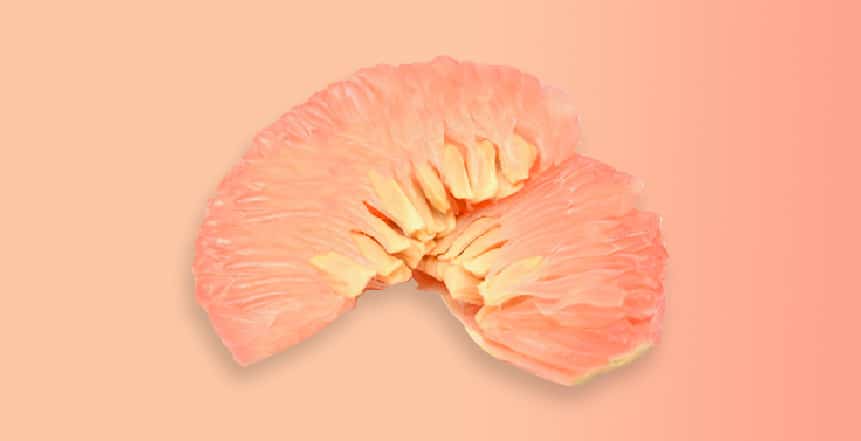Grapefruit is one of the most popular fruits around the world, packed with health benefits and a great source of vitamin C. However, there’s an aspect many tend to overlook about grapefruit – its seeds. Grapefruit seeds have been gaining traction lately for their potential health benefits and use as an herbal remedy in various forms, such as oil or powder extract.
But can you eat grapefruit seeds? The answer is yes – you can eat grapefruit seeds.
This article will answer your questions about consuming this often forgotten part of a staple fruit!
Contents
- What Are Grapefruit Seeds?
- Can You Eat Grapefruit Seeds?
- What is Grapefruit Nutrition?
- Are Grapefruit Seeds Poisonous?
- How to Choose Grapefruit Seed Extract?
- How to Use Grapefruit Seed Extract?
- Grapefruit Seed Extract Possible Side Effects and Caution
- The Amazing Health Benefits of Grapefruit Seeds — Nature’s Powerful Medicine
- FAQs
- Conclusion
What Are Grapefruit Seeds?

Grapefruit is a citrus fruit that belongs to the Rutaceae family, which has a tart, tangy flavor that is often described as a combination of sweet and bitter. It is rich in vitamins C and A, as well as potassium and dietary fiber, and it has been linked to several health benefits, including improved digestion, lower cholesterol levels, and a reduced risk of certain diseases.
Grapefruit seeds are the small, round, and brown seeds that are found inside grapefruit. They have a bitter taste and are often discarded while eating grapefruits, but whether they are actually consumed is a question many people wonder.
Can You Eat Grapefruit Seeds?
The short answer is yes, you can eat them. Grapefruit seeds are safe to eat and are actually nutritious. They are a good source of fiber, protein, healthy fats, and various vitamins and minerals. Incorporating grapefruit seeds into your diet can be a beneficial choice due to their advantageous properties.
What is Grapefruit Nutrition?

Grapefruit is a nutritious fruit that is low in calories and high in vitamins, minerals, and fiber, including the following:
- Protein
- Fiber
- Vitamin C
- Vitamin A
- Thiamine
- Potassium
- Magnesium
- Folate
- Beta-carotene
- Lycopene
- Flavanones
Are Grapefruit Seeds Poisonous?
No, grapefruit seeds are not poisonous and are safe to eat. In fact, grapefruit seeds are nutritious and can be a good source of fiber, protein, healthy fats, and various vitamins and minerals.
Nonetheless, large amounts of grapefruit seeds can be detrimental due to the presence of psoralen and bergapten. These substances can result in skin sensitivity and irritation, especially to sunlight.
Although grapefruit seeds are usually safe to eat, it’s crucial to be aware that they can have interactions with specific medications. For instance, some antidepressants, medications for hypertension, and statins may be affected by grapefruit seed extract.
How to Choose Grapefruit Seed Extract?
The grapefruit seed extract is a concentrated liquid made from the seeds and pulp of grapefruits, and it is sometimes used as a natural remedy for various health issues, such as fungal infections, digestive problems, and skin conditions. Here are some tips on how to choose and use grapefruit seed extract:
- Choose a high-quality product: Look for grapefruit seed extract that is made from organic grapefruits and does not contain any artificial preservatives or additives.
- Follow the recommended dosage: Grapefruit seed extract is highly concentrated, so it’s important to follow the recommended dosage on the product label.
- Dilute the extract: Grapefruit seed extract is very bitter, so it’s best to dilute it in water or juice before consuming it. The recommended ratio is usually around 10-15 drops of extract per 8 ounces of liquid.
- Talk to your healthcare provider.
How to Use Grapefruit Seed Extract?
The grapefruit seed extract is a concentrated liquid that is made from the seeds and pulp of grapefruits. It is sometimes used as a natural remedy for various health issues due to its potential antimicrobial, antioxidant, and anti-inflammatory properties. It is used for:
- As a gargle for colds and sore throats
- As a mouthwash to improve gum and dental health
- As a nasal/sinus wash to treat sinus infections and colds
- As ear drops
- To ease digestive disturbances like candida and traveler’s diarrhea
- As a remedy for skin wounds
- As a wash to clean fruits and vegetables
Grapefruit Seed Extract Possible Side Effects and Caution
While grapefruit seed extract is generally considered safe for most people, there are some potential side effects and cautionary notes.
First and foremost, some people may be allergic to grapefruit seed extract, which can cause symptoms such as itching, swelling, and difficulty breathing. Grapefruit seed extract can also interact with certain medications, including antidepressants, statins, and blood pressure medications. This can increase the risk of side effects and reduce the effectiveness of the drugs. In addition, there is not enough research to determine whether grapefruit seed extract is safe for pregnant or breastfeeding women, so it’s best to avoid using it in these cases.
It’s important to talk to a healthcare provider before using grapefruit seed extract, especially if you are taking any medications or have any underlying health conditions.
The Amazing Health Benefits of Grapefruit Seeds — Nature’s Powerful Medicine
1. Fights Candida
Grapefruit seeds are believed to have antifungal properties that can help fight candida overgrowth. Candida is a type of yeast that lives naturally in the body, but an overgrowth of candida can lead to a variety of health problems, including digestive issues, fatigue, and recurring yeast infections.
2. Kills Antibiotic-Resistant UTIs
Antibiotic-resistant urinary tract infections (UTIs) are a growing concern, as they can be difficult to treat with traditional antibiotics. Some research suggests that grapefruit seed extract may have antibacterial properties that can help fight antibiotic-resistant UTIs.
3. Remedies Fungal Infections
Histoplasmosis is a type of fungal infection caused by a fungus that is frequently found in the droppings of birds and bats. The infection is typically spread through airborne spores, which can occur during activities such as cleanup or demolition projects or through soil that has been contaminated with the droppings.
Studies suggest that Grapefruit seed extract is believed to have antifungal properties that may help fight fungal infections. Fungal infections can affect various parts of the body, including the skin, nails, and mucous membranes.
4. Relieves Athlete’s Foot and Nail Fungus
Grapefruit seed extract may have antifungal properties that can help alleviate certain types of fungal infections, including athlete’s foot and nail fungus. An athlete’s foot is a common fungal infection that affects the skin on the feet, while nail fungus can cause thickening, discoloration, and other changes to the nails.
5. Treats Digestive Disturbances Associated with Eczema
Some natural health practitioners suggest that grapefruit seed extract may be helpful for treating digestive disturbances that are sometimes associated with eczema. Eczema is a chronic skin condition characterized by redness, itching, and inflammation. Some people with eczema may also experience digestive symptoms such as bloating, gas, and abdominal pain.
6. Works as a General Antimicrobial
A grapefruit seed extract has been found to have antimicrobial properties, which means that it may be effective at fighting a variety of microorganisms such as bacteria, viruses, fungi, and parasites. This broad-spectrum activity makes grapefruit seed extract a popular natural remedy for a range of health conditions. Numerous natural product manufacturers avoid using synthetic or artificial preservatives and, instead, use grapefruit seed extract for its ability to preserve products by destroying undesirable bacteria.
FAQs
Does Grapefruit Seed Extract Fight Viruses?
There is some evidence to suggest that grapefruit seed extract may have antiviral properties. Some laboratory studies have found that it may be effective against certain viruses, such as microbes—bacterial, viral, and fungal.
Are Grapefruit Seeds Good For You?
Certainly! Grapefruit seeds can be a nutritious addition to a balanced diet. They contain a variety of vitamins and minerals, including vitamin C, vitamin A, potassium, magnesium, and calcium. Grapefruit seeds are also a good source of fiber, which can help support digestive health.
Can I Take Grapefruit Seeds On An Empty Stomach?
It is generally recommended to take grapefruit seed extract with meals to avoid stomach irritation. However, it is best to follow the specific instructions provided on the product label or as directed by a healthcare professional.
Who Should Not Take Grapefruit Seed Extract?
While grapefruit seed extract is generally considered safe for most people when taken appropriately, there are some individuals who should avoid it. These include pregnant and breastfeeding women, children, and individuals with certain medical conditions.
Conclusion
To sum up, the answer to the question “Can you eat grapefruit seeds?” is yes, you can! Eating grapefruit seeds has some health benefits that may outweigh any potential risks. Eating grapefruit seeds provides your body with essential fatty acids and antioxidants such as lycopene and allicin, which have been known to help fight inflammation and other diseases. In addition, eating grapefruit seeds may also increase your fiber intake, help cleanse your body of toxins, and assist in weight loss.
While there are potential downsides to consuming too many grapefruit seeds, it is important to be aware of them when deciding how much to include in your diet. With proper safety precautions taken by those with existing health conditions or pregnant women, there should be no problem in enjoying the benefits of this delicious fruit and its versatile seeds!
